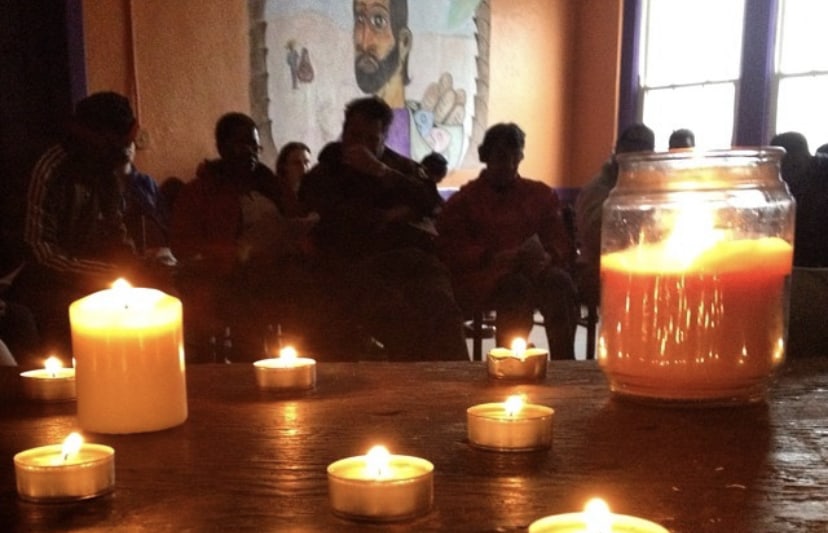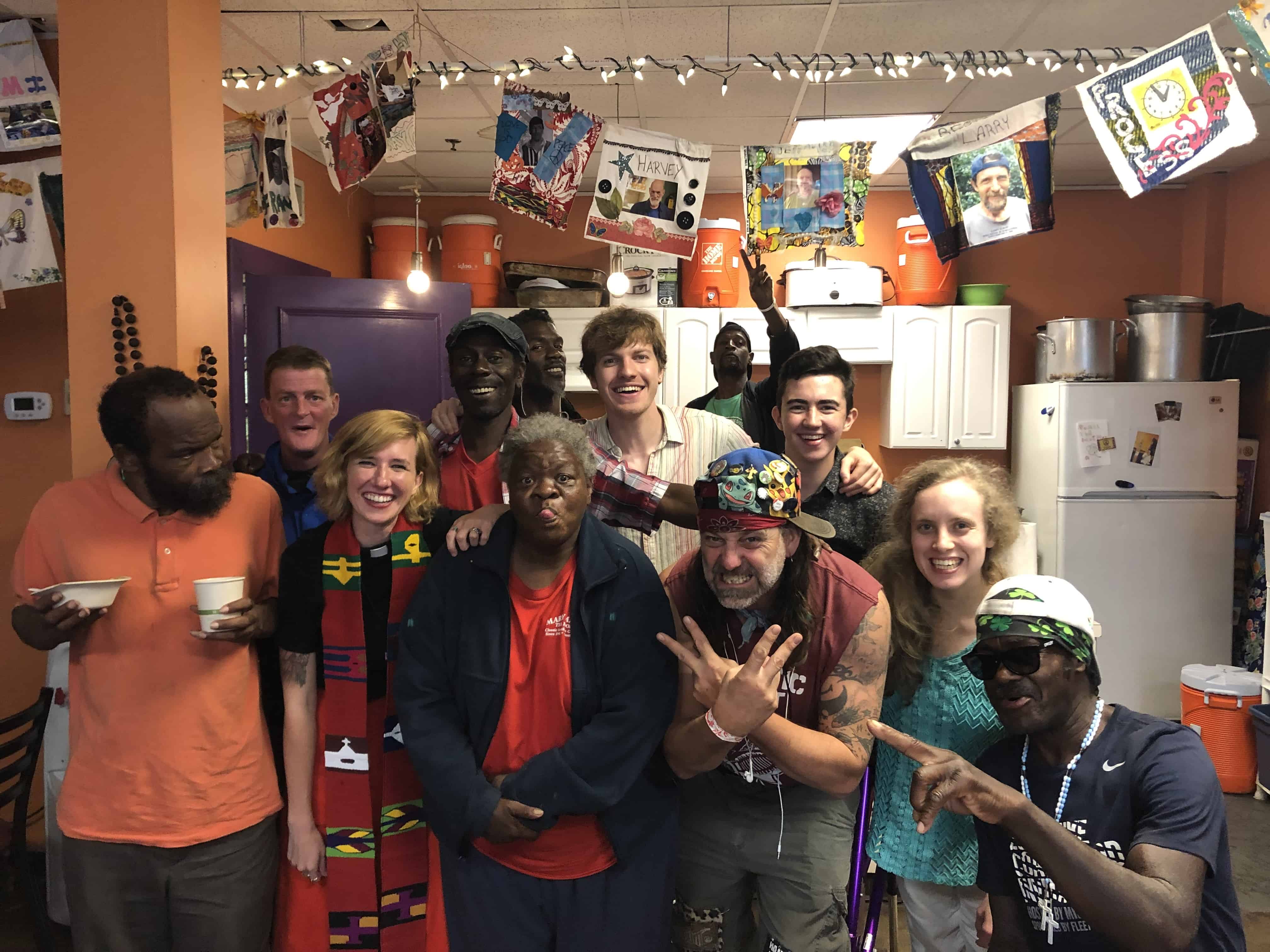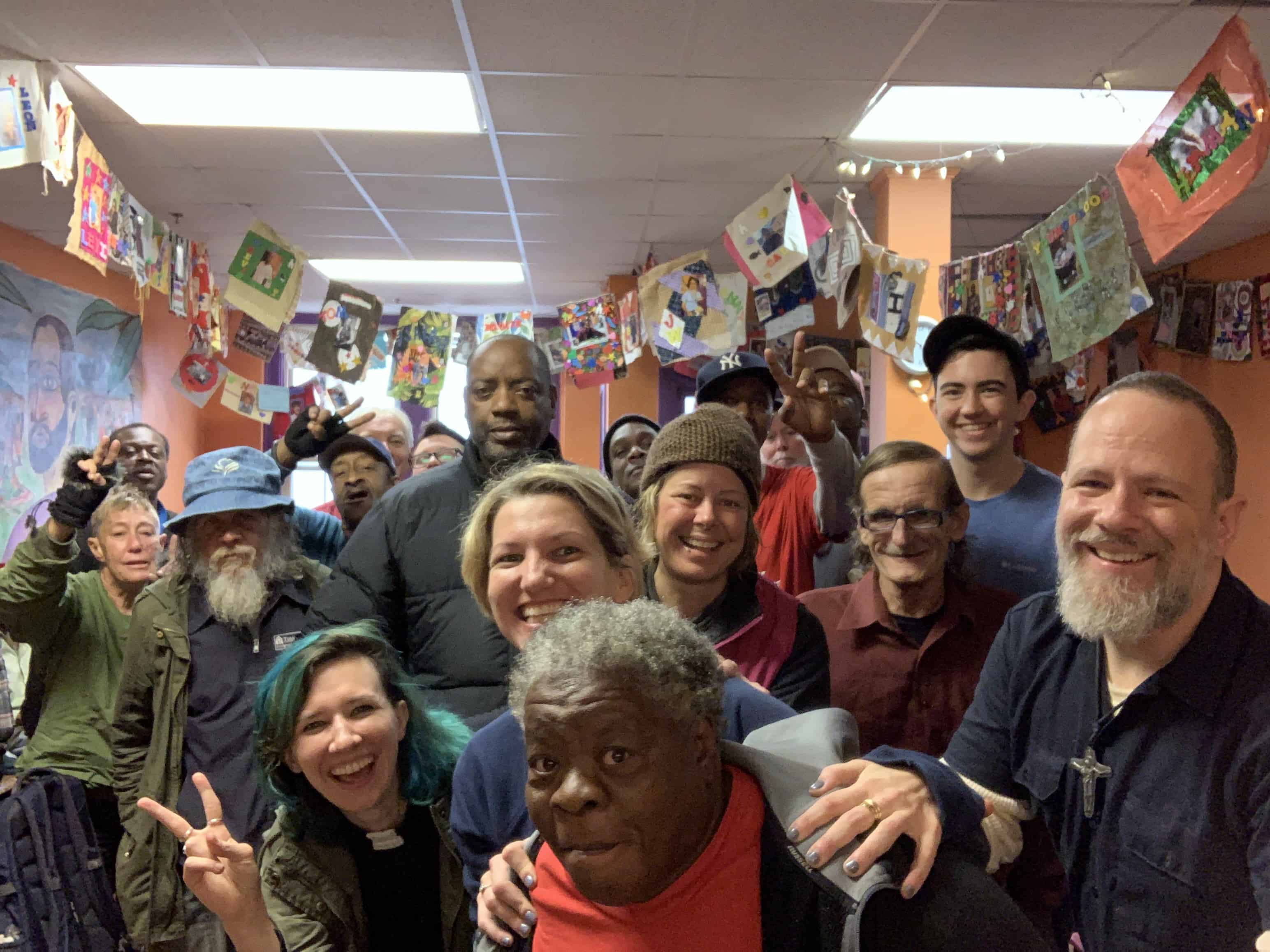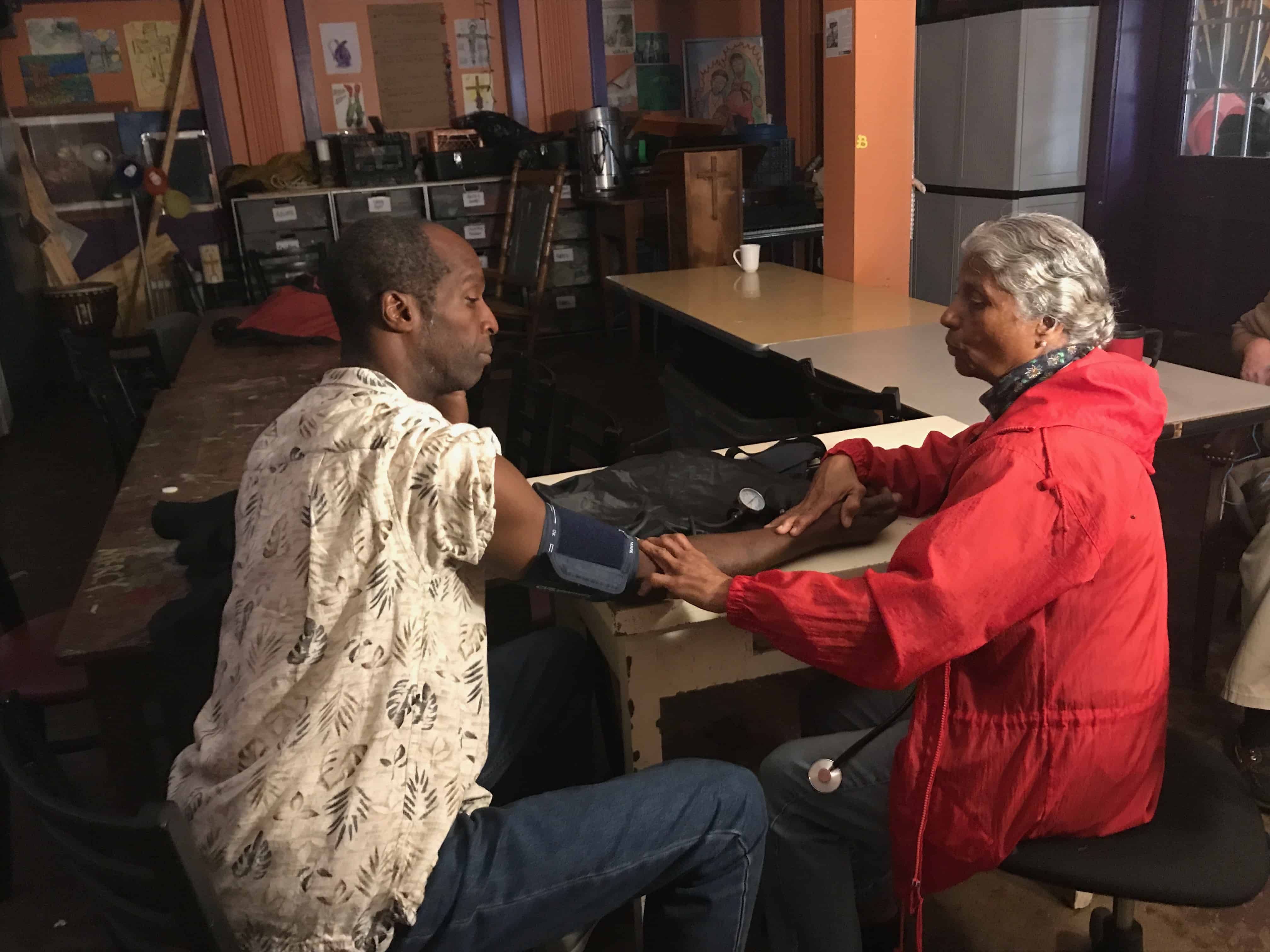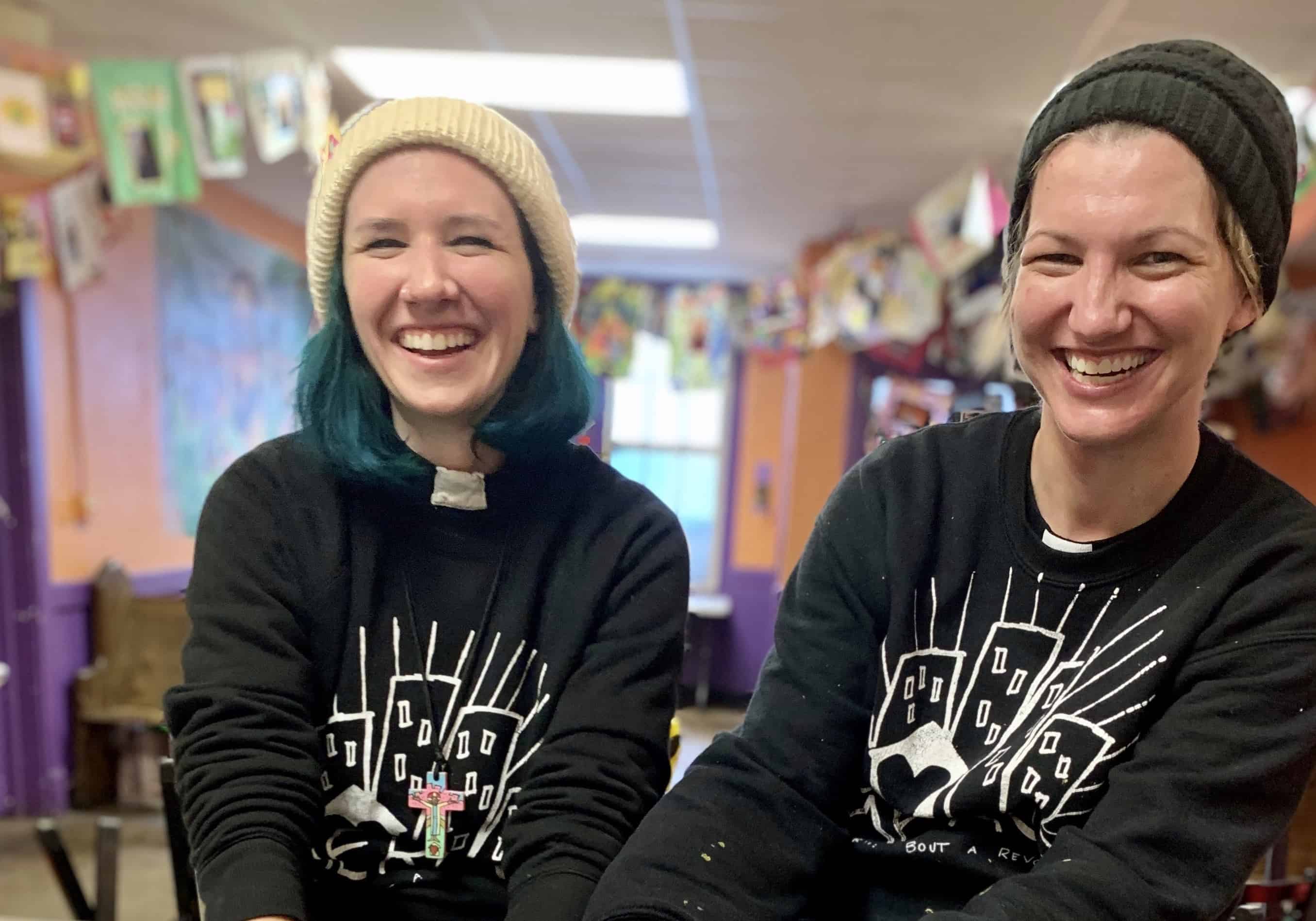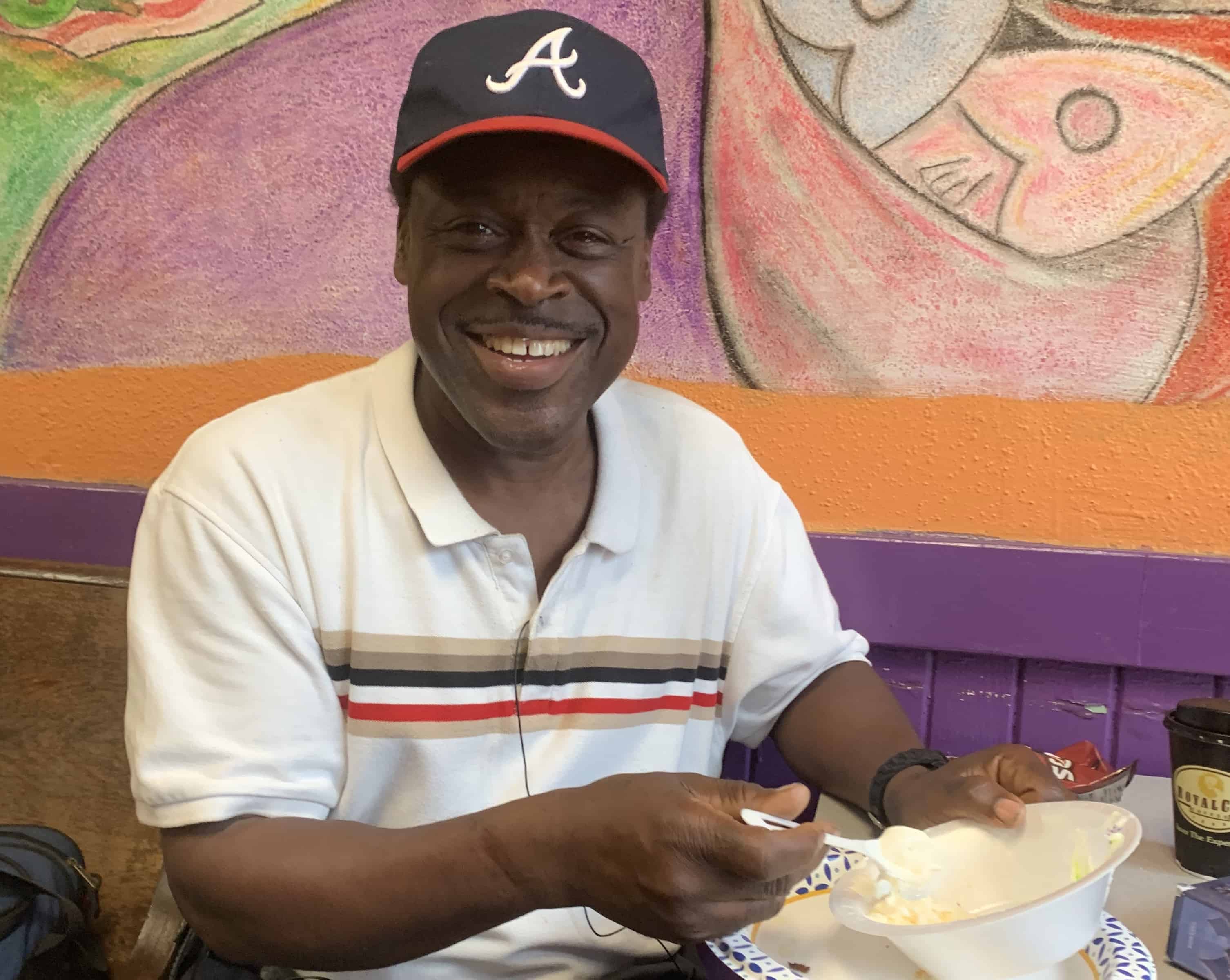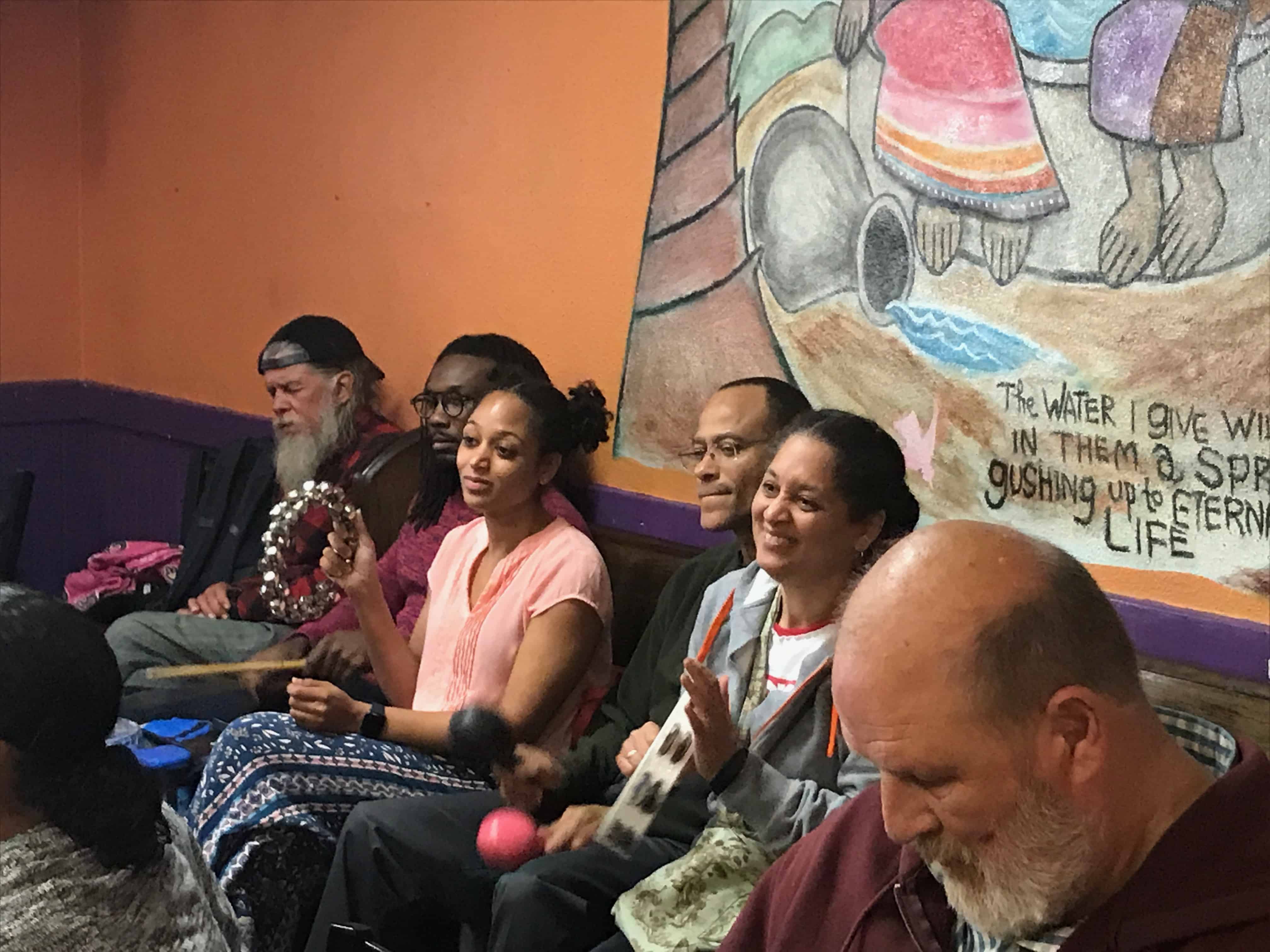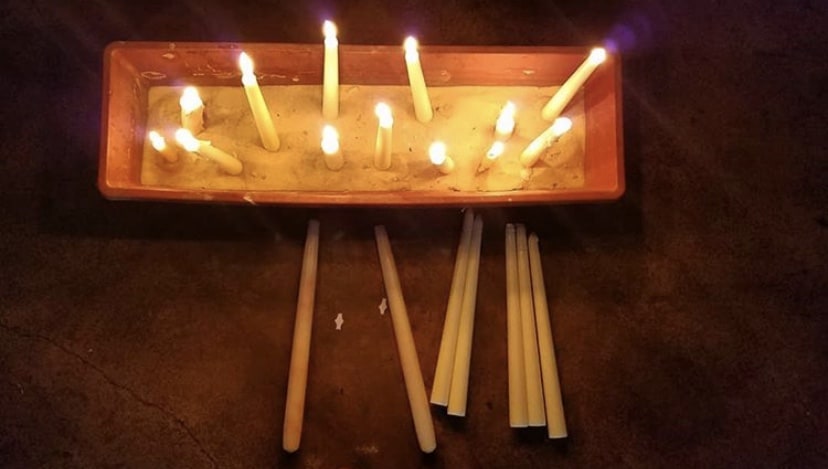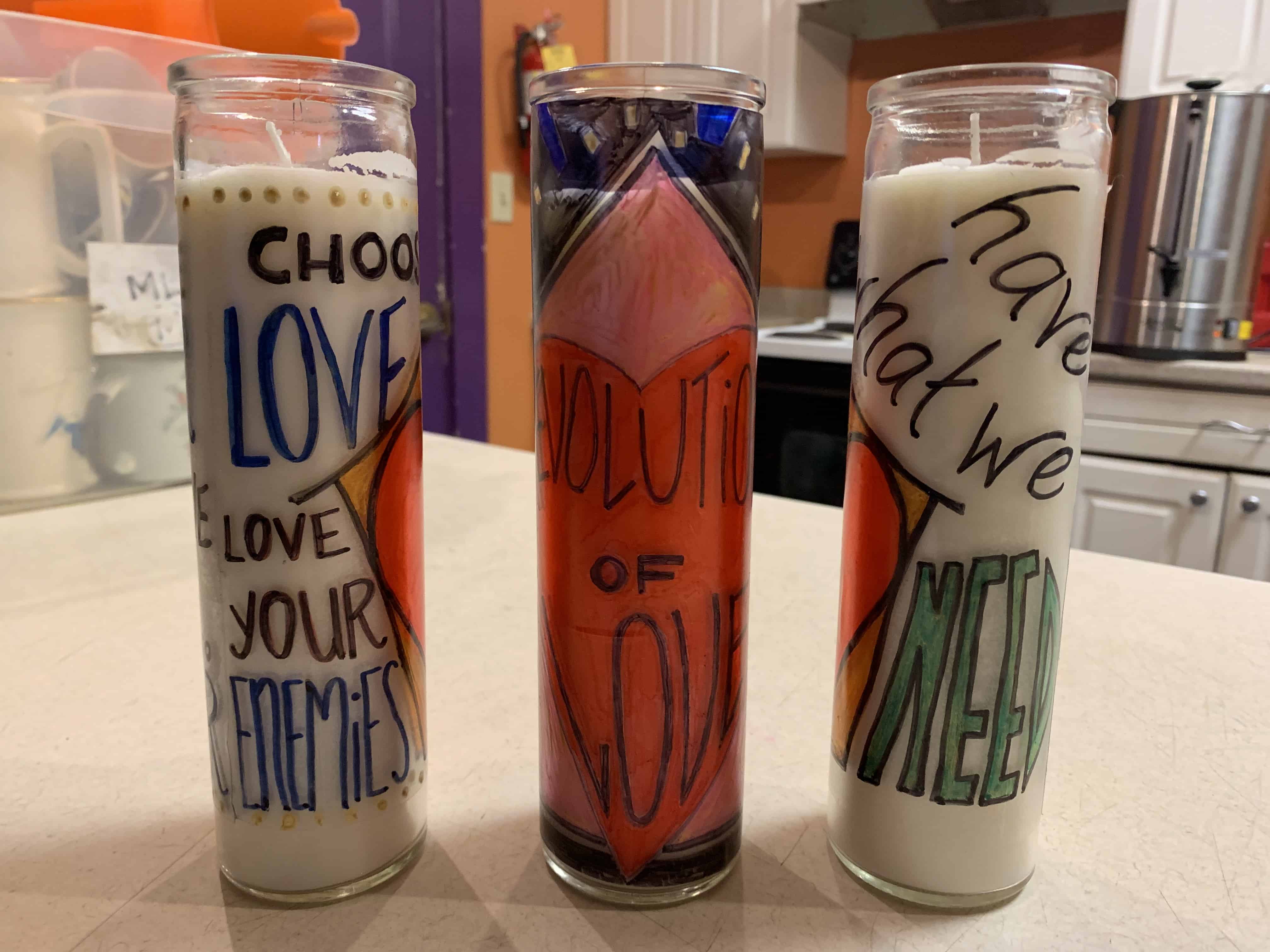By: Holly Reimer
Matthew 27:57-66
Reflection—v. 61 ‘Mary Magdalene and the other Mary were there, sitting opposite the tomb.’
They sit and wait. I don’t know about you, but I am not a patient person. I HATE waiting and as a result am in constant motion. But there is nothing to do on Holy Saturday but wait. We can remember the promises we have been told by Jesus himself, trusting in who he is, waiting for him to return, but we still must wait. And so we wait in our sadness, in moments of despair–waiting. Outside of pastoring at Mercy, I spend my extra time in the hospital serving as a chaplain to those who have lost loved ones. This is the very image that comes to mind – family members and friends sitting at the bedside. The loved one has passed, all efforts for revival have been attempted and it is finished–so they sit, paralyzed by sadness. Parents wait until the very last moment with their dead child. And so we also sit with one another in our community. We sit and wait for test results in the hospital. We sit opposite one another when a beloved member expresses feeling lost, distanced or even oppressed at the hands of God. We sit. In the pain and grief there is often nothing we can do to ‘fix’ the things that afflict, but being present in that very moment is valuable. In moments like these, we sit in the darkness and we wait. There is no pressure to move forward.
Prayer O Lord, we sit and wait for you. Let us be faithful as you have and forever will be.
Wednesday, April 8th
By: Brittany Fiscus-van Rossum
Isaiah 50:4-9a
Reflection—v. 7 ‘I know that I shall not be put to shame’
Shame is something we talk about a lot in our community. While it often seems that healthy foods, affordable housing, and adequate healthcare are scarce, shame comes in abundance out here on the streets. Homelessness, joblessness, mental health, severed relationships, poverty, addiction—they can all carry shame, and the false narratives our society spews only serve to bolster the case that we are failing or that we’ve done something wrong, when really there are larger more systematic problems at play here. Shame can keep us from seeking wellness for ourselves or from forming healthy community. Shame can even keep some of us from learning and growing when we become immobile with fear, not wanting to say or do the ‘wrong’ thing. My firm belief is that God desires to set us free from such shame. When we study scripture together as a community at Mercy, we remind ourselves of this liberating truth. We remind ourselves that though the world may spit at us, strike us, and insult us, God will not put us to shame. God created us, loves us, and desires for us life and well-being, and not the shame that inhibits our thriving. In our community we have a variety of ways of proclaiming how our relationship with God is ‘mess-up safe,’ so there’s no shame. In the moments that I find myself carting around my shame like an unwanted carry-on, I’m thankful for a community that reminds me that my relationship with God, and with them, is safe.
Prayer Loving God, set us free from the shame that inhibits our thriving in community.
Friday, March 27
By: Brittany Fiscus-van Rossum
Psalm 23
Reflection—v. 23 ‘…and I will dwell in the house of the Lord’
What does it mean to make someplace a home? This past fall my family and I purchased and moved into our first home, but oddly enough, my new residence isn’t the first place that comes to mind when I think of the home I’ve made here for myself and my family. I think of my community and how they have taught me to read the Bible in ways I couldn’t perceive before. I think of how the moment my daughter bursts into the room where we worship and eat together multiple voices shout out reminders about her peanut-allergy and stash nut products away so no harm comes to her. I think of the people with whom I can be angry and disappointed and joyful and silly and my whole beloved-broken self, knowing that there’s no judgment because they’re beloved and broken too and I am not alone. Being in community isn’t always so wistfully blissful, but it does remind me of what God desires for us: home. God desires for us, pursues for us, a place to rest our heads at night that offers shelter and security and the dignity we all deserve. But in addition to the physical shelter that is so essential, God also desires for each of us places of security where we know we can come and be ourselves, embraced for our full humanity, not told to move along, but told to sit and rest awhile because we belong here. The church can be that place—let’s make a home for one another right here.
Prayer Let us dwell with you, O Lord, and lead us into safe spaces where we can be ourselves and know that we are loved.
Tuesday, March 24th
By: Brittany Fiscus-van Rossum
Ephesians 5:8-14
Reflection—v. 11 ‘expose them’
Listening to the news about our country’s current state of affairs can be a practice in self-inflicted misery—it’s disheartening. Is there no one above corruption? Is there anyone willing to listen with reason and compassion? As I listen, I wind myself up with self-righteousness that quickly turns to resentment and despair. I want people to see what seems too clear to me! I want these crooked politicians and all their broken systems to be exposed! But then there are also these other times, when I myself know there are things I would rather conceal—all the ways that I am selfish, the many instances when I have benefited from privilege, the mistakes I’ve made, the times when I’ve said the wrong or hurtful thing. I don’t want anyone to know these things about me, lest they know that I’m imperfect too. On my healthiest of days, I know in my heart that none of us are perfect. The more willing I am to expose my own short-comings instead of squirreling them away in shame, the better I am able to mature and be transformed by the loving truth that I am complicit and sinful, that I have things to work on, but I am also beloved. Walking into the light, letting yourself be exposed for who you truly are (simultaneously beloved and broken), can be a bit of a painful process, but I believe it leads to wholeness, health, and a loving truthfulness we too often neglect. I pray for our leaders, and all of us who hold power, to be so exposed, that it may bring life, truth, and well-being for us all.
Prayer Healing spirit, descend upon us to bring light and truth and life!
Sunday, March 22nd
By: Brittany Fiscus-van Rossum
1 Samual 16:1-13
Reflection—v. 2 ‘How can I go? If Saul hears of it…’
I can relate to Samuel’s hesitance after God urges him to seek out the next king of Israel. ‘If Saul finds out I’m looking for his replacement he will literally kill me,’ says Samuel. ‘Just take a cow with you and pretend you’re going to give a sacrifice,’ God says, imploring Samuel to be a little crafty in his work-around the system. God asks Samuel to subvert the powers that be, and while it’s cool to think about being a rebel for the Lord, it wasn’t as easy as blasting a contentious Facebook post. You see, I too like to fancy myself a rebel sometimes, with my turquoise hair and my tattoos, but in truth, deep down inside I like following the rules, getting pats on the head, and well, being liked. Yet try as I might to avoid it, if I position myself with God’s people on the margins, I seem unable to escape uncomfortable conflict. I find myself in situations where I must pushback when I would rather be agreeable. Where I must step in the midst of arguments when I would rather turn away. Where I must hide my intentions to protect the wellbeing of my community when I would rather trust systems and policies. Because the longer I find myself trying to be a faithful follower of our expectation-sabotaging God the more I find myself questioning whether ‘the powers that be’ have the poor’s best interests at heart (spoiler alert: they don’t!). When we’d rather not, may God give us the courage to be crafty power-subverting God-followers like Samuel and answer God’s command to ring in a different kind of kingdom.
Prayer Give us the courage, O God, to subvert the powers that do your children harm.
Saturday, March 14th
By: Jerome Johnson
John 3:1-17
Reflection—v. 17 ‘God did not send the son into the world to condemn the world’
God gave his only son so that I might live and be forgiven of my sin. Knowing that God came to bring life makes me feel good and bad in a way, because of the way they treated Christ. If I were Christ, I don’t think I would have wanted to do it. I’m glad he did, I just hate the way they treated him. Sometimes I hate to read the scripture where they beat Jesus. I don’t get any pleasure in that, the way they beat him and stripped him and then hung him on the cross. Jesus came here and he did nothing but good, and still, they crucified him and killed him. I just don’t understand it. I still just can’t quite grasp it. If a person is doing good, why would you harm him? Oh, God forgive us. Thank God, that’s not the end of the story. It makes me sad sometimes, thinking that if I was Jesus I would have called on my angels, but instead he said, ‘God forgive them for they know not what they do.’ How can you have that much love for people? It’s awful amazing, and I thank God for that. And that God didn’t send Jesus to condemn us, but to save us? That’s awesome. I like that part of this passage too. I just thank God for what he’s done. He wants to save us, and that is awesome. I thank God for coming down for me.
Prayer Oh, God forgive us. Thank God, that’s not the end of the story. Thank you for sending Jesus, and the ways that you want to save us.
Wednesday, March 4th
By: Holly Reimer
Romans 5:12-19
Reflection—v. 15 ‘The free gift in the grace of the one man, Jesus Christ.’
We talk a lot about the differences between transactional and transformational relationships in our community. Transactional relationships mirror the exchange of goods and services when we make purchases, and are tit-for-tat interactions—you scratch my back, and I’ll scratch yours. We expect to receive some kind of goods or services from someone if we do something for them. This is not who God is. This is not why Jesus came. Jesus desires to be in a relationship with us, a relationship that transforms our entire being. This is a gift that comes through Christ, who speaks so radically against the ways of the world and encourages us to be countercultural. Transformation is difficult- -it is a process. It is the difference between buying someone a meal and sending them on their way, and sitting down with someone to eat a meal together. One is a transaction the other invites relationship-forming transformation. Such a transformation honors the belovedness of our creation and God’s desire for wellness and wholeness for each person—not because we have ‘earned’ it, but because, as the text reminds us, it is a ‘free grace.’ Love for the individual in the relationship is at the core of such a gracious relationship and thus speaks of the transformation that happens within us. In God’s grace, we are changed.
Prayer: May we continue to be challenged into transformational relationships.
Sunday, March 1st
By: Holly Reimer
Genesis 2:15-17, 3:1-7
Reflection—v.17 ‘but don’t eat from the tree of the knowledge of good and evil…’
Restrictions and rules are incredibly frustrating. Boundaries can make us feel trapped and restless. We live in a world of constraints, many of which, for good reasons, can have negative connotations. We desire to build walls and put up fences that keep some of us in power and separate others from good relationships. But healthy boundaries are not always a bad thing. God has created boundaries for human beings, not because of God’s deep desire to control and manipulate us but because of God’s great love for humankind. The image that comes to mind is that of a parent and child or a teacher and a student, where the learner is asked not to do something–like touch a hot stove. To the child, this can feel oppressive and limiting, whereas to the parent or teacher, it is a measure of love and care. We have a beloved member of our community who often encourages us to be obedient to God and to one another in our space. By living within the boundaries of our community, what that beloved community member might call ‘obedience,’ we all have a space where we can feel safe and loved. Being obedient in our community is not about restrictions but freedom. This is the work of God, where we can reclaim something that perhaps we’ve always seen as negative and see freedom and wholeness instead.
Prayer Thank you God for boundaries that keep us safe and promote wellness
Saturday, February 29th
By: Rod Reimer
Isaiah 58:1-12
Reflection—v. 6 ‘loose the chains of injustice and untie the cords of the yoke’
Dr. Martin Luther King declared that the ‘ultimate measure’ of a human being is not where we stand ‘in moments of comfort and convenience’ but where we stand ‘at times of challenge and controversy.’ Those words are so very true and appropriate to all of us today. Many of my brothers and sisters who are on the street find themselves weighed down by the chains of injustice, tied to a yoke of oppression, seemingly forgotten, left to wander without shelter, hungry, thirsty, and left to feel unloved. In Isaiah 58, the prophet Isaiah ben Amoz tells us not to turn away from our own ‘flesh and blood,’ for we are all brothers and sisters created by God. We are to ‘loose the chains of injustice and untie the cords of the yoke, to set the oppressed free…share [our] food with the hungry and to provide the poor wanderer with shelter…to clothe the naked.’ In doing these things, our light ‘will break forth like the dawn’ and our light ‘will rise in the darkness.’ The great news is that we do not have to do this alone, for ‘righteousness will go before you and the glory of the Lord will be our rear guard.’ When we call, the Lord will answer. When we cry for help, God will say, ‘Here am I.’ The Lord will guide us always and will satisfy our needs in a ‘sun-scorched land.’ I give thanks for what I am experiencing at Mercy with all of my brothers and sisters, and I pray that all of us may follow the prophet Isaiah’s directions always.
Prayer Lord, help your people to be a light in these times of challenge and controversy

